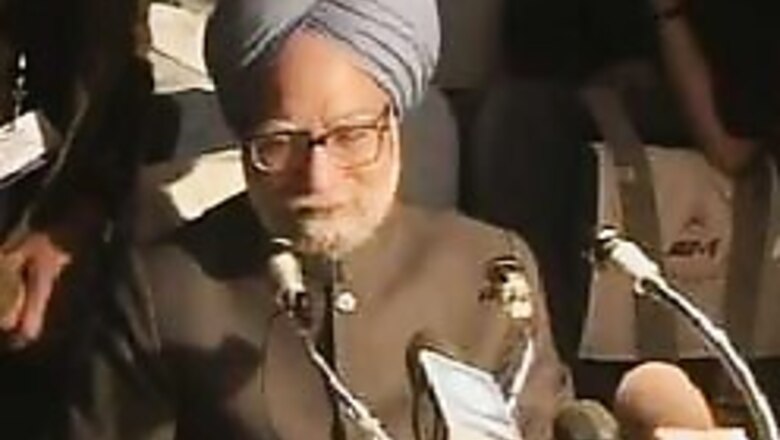
views
London: Listing financial sector reform and increase in investment in infrastructure as India's "two biggest priorities," Prime Minister Manmohan Singh has exuded confidence of getting political support on these issues.
"Financial sector reform and increase in investment in infrastructure are our two biggest priorities," Singh said in an interview published in Financial Times on Monday coinciding his visit to Britain.
About the obstacles in the way of reforms, he said, "Politics is the art of the possible and I have to live with the situation I inherited. There have been difficulties, but I have not given up hope. We have not completed half the term."
The Communist Party of India (Marxist) is opposed to lifting foreign direct investment caps in the insurance sector, currently set at 26 per cent, while Reserve Bank of India is ring-fencing banks from takeover until 2009.
Singh said, "We cannot achieve our social and economic objectives unless there is reform of the insurance and banking system. Infrastructure requires long-term investment and our banking system is essentially short-term oriented."
Sustaining a growth rate of 8-10 per cent would hinge on "massive investments" in infrastructure that would require India to mobilise long-term capital more effectively than was currently possible in a short-term debt market, he said.
He also defended the creation of special economic zones, which have been attacked by left-wingers in the Congress party and fiscal hawks in the finance ministry.
Singh's defence of SEZs came days after Congress President Sonia Gandhi warned that farmers needed better protection from abuses of compulsory land acquisition provisions included in the new SEZ Act that came into force in February.
"Special economic zones have come to stay. There are certain aspects, such as the use of prime agricultural land, which must be addressed, but in some states such as Punjab where there is no vacant land, that may be the only way," Singh said.
The newspaper observed that Sonia's intervention has added to the considerable policy uncertainty surrounding the future of SEZs, a central plank of the government's strategy for attracting domestic and foreign investment into labour-intensive manufacturing.
The finance ministry has warned of revenue losses from the proliferation of tax-exempt zones, while economists say that, with an average size of 4 sq km, the 267 SEZs so far approved will be subscale and uncompetitive.



















Comments
0 comment